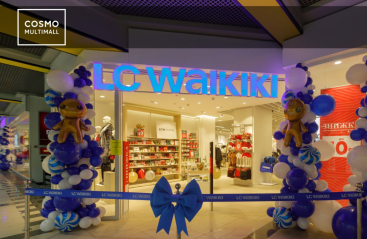The Covid 19 epidemic takes away not only lives, but also the incomes of Ukrainians. In conditions of suspension of work, many companies dismiss employees or send them on unpaid leave. Studies of the Ukrainian market indicate that quarantine negatively affected the career and income of 4 out of 10 respondents.
According to the analytic company Factum Group, since the introduction of quarantine, 20% of Ukrainians went on vacation without a salary, while 19% had a lower salary than before the introduction of restrictions. The company notes that in most cases, the reduction in wages was at the level of 30% or less. But about 5% of Ukrainians lost more than 30% of their income.
Versatile movement
In Ukrainian retail, restaurant business, development and online trading, companies deal with staff in completely different ways. It should be recognized that a significant part of small retailers who were forced to stop working, in the absence of working capital, were forced to send employees on unpaid leave.
However, many companies whose points closed during the quarantine period are still looking for ways to preserve employee salaries.
“Financially stable companies, for which the human resource is valuable, find the opportunity to organize the work of their employees remotely and leave wages at the level of 2/3. If there is no possibility of remote work, some companies send employees on paid leave. The rest take an individual and differentiated approach, keeping their salaries at the level of 30-50% depending on the degree of staff employment, ”says Taisiya Litovchenko, director of the consulting company Retail & Development Advisor.
For example, Sushi Master entered the network of institutions in this way, whose sales fell by more than 70% due to quarantine. A slight increase in revenue due to delivery could not compensate for the loss of turnover of offline points.
“We expect the fall to continue further. Despite this, we are not going to give up. We have already made a huge number of anti-crisis decisions and made forecasts for April, approving plan A and plan B. We closed seven restaurants (mainly in the shopping center), and their delivery zones were distributed between working institutions. At the same time, we quickly adapt to new conditions: remote office work and contactless delivery. They reduced advertising costs, procurement and salaries by optimizing employee schedules, ”said Anna Ostrovskaya, CEO of Sushi Master (Ukraine).
Intertop, which was also forced to close its offline stores, continues to pay salaries to employees, despite cash gaps.
As the director general of Intertop Ukraine Sergey Badritdinov said during a RAU-organized webinar, in difficult times, the company is supported by its shareholders. “We have not fired anyone and continue to pay wages to all employees, and this is about 1,600 people. We understand that people should be with us, and we must support them. We have already calculated that we can withstand the load of April. However, we don’t know what will happen next, ”said Intertop's top manager.
Developers do not have mass cuts, however, some management companies have already warned their employees about a possible reduction in salaries.
For example, in the company Budhouse Group, which manages several large shopping centers in the regions of Ukraine, they plan to reduce wages in April. “We warned employees that there will be wage cuts in April. We will look further at our capabilities. If we are able to provide full wages, we will meet our obligations. If not, we’ll try to pay at least 50% before the end of quarantine, ”said Maxim Gavryushin, Operations Director of Budhouse Group.
Change of priorities
It is worth noting that not only stopped companies, but also those networks that continue to work, have to adjust work with personnel in connection with quarantine. For example, the company Auchan Ukraine noted that there is no acute shortage of personnel in stores, but the retailer is taking a number of measures to reorganize the work of employees.
“We are talking about work schedules, mixing employees between more and less demanded departments, providing the opportunity to work in stores that are closer to home, or remotely where processes allow to do this (more for the office). We also send staff to help partners from Zakaz and Glovo to jointly accelerate the process of delivering goods to customers, ”the AUAN network press service told, adding that IT and data analysts remain the most relevant specialties for the company.
In other major chain stores, the situation is similar: despite the introduction of quarantine, an acute shortage of personnel is not observed. At the same time, the majority of retail companies transfer head offices to remote work.
The largest drogerie retailer in Ukraine - the EVA chain of stores - was no exception. “In order to protect our workers from coronavirus infection, the entire central office in the Dnieper has been transferred to a remote mode of operation. A week before, they conducted preliminary testing of the work of all the services of the company and made sure of their willingness to work remotely. This is expected to change our business processes. There has become more communication between top managers and teams over the phone, through video conferencing services. Setting and monitoring tasks is through an internal corporate portal. However, despite the frantic pace of work, top managers find time to support and encourage the team. Because people are the most important thing at this time, ”says Olga Shevchenko, executive director of the EVA store line.
In delivery services, demand for services has grown in different ways, and accordingly - the need for additional human resources has changed in different ways.
For example, the service Zakaz.ua, which specializes in the delivery of goods from supermarkets, has launched a large-scale campaign to recruit staff for the vacancies of pickers and couriers. Several dozens of new employees have already joined the company.
“However, we continue to feel a lack of staff. We are currently working in eight cities, and the percentage of vacancies differs depending on the city. If in Zhitomir and Vinnitsa 2-3 people are ready to take an extra, then in Kiev and cities with population over one million people these figures are an order of magnitude larger, ”says Andrey Kursky, CEO of Zakaz.ua. According to him, pickers and couriers are not the only vacancies of the company. The service is looking for IT-developers, HR-specialists and call-center operators. At the same time, the top manager believes that before quarantine ends, the most popular vacancies will be couriers, order pickers, call center operators, as well as HR managers and trainers.
In the delivery service, Raketa, on the contrary, does not feel a shortage of personnel. The company acknowledges that with the growth of distance orders, the demand for couriers has increased, but it was completely blocked by people who temporarily lost their jobs. “We fully cope with the current team. The work of the logistics department is structured so that we respond flexibly and quickly to peak loads. The set is now open only in cities where it is planned to further expand the coverage of the Raketa service, ”the company added.
Fewer merchants - more couriers
Work.ua assures us that the first weeks of quarantine have already substantially changed the situation on the labor market. In the second half of March, both the number of vacancies and the number of resumes significantly decreased in Ukraine. This situation is observed both in the hotel and restaurant business and tourism, as well as in retail trade, real estate and other business areas (graphs below).
At the same time, company analysts draw attention to the fact that although vacancies in general have decreased, individual companies, on the contrary, have increased the rate of recruitment. “Glovo is looking for couriers, especially on its cars, it is looking for employees. Nova Posta, Meest is looking for couriers and even top managers. Therefore, we can say that express delivery companies are experiencing an acute shortage of labor. The number of vacancies has also dropped in e-commerce, but some companies are looking for a variety of specialists: logisticians, drivers, customer service managers and PPC specialists, ”Work.ua said.
Other data is provided by the recruiting company Head Hunter. It is noted here that according to the analysis of the vacancy database posted on hh.ua | grc, with the introduction of quarantine, retailers began to be more active in the search for new employees. Thus, the share of vacancies placed by them increased to 11% of the total number of job offers, and the number of vacancies from them increased by 72% compared to the same period in February.
In the second half of March (December 12-31), the largest number of job offers in the retail sector were placed by food retail chains - they account for 25% of all vacancies in this industry.
Online stores are slightly inferior in the number of job offers - they posted 22% of the vacancies. Moreover, their share in the total volume of vacancies in the retail trade compared to the previous year increased quite significantly - from 16% to 22%.
The share of mobile retail companies has also increased (from 1% of vacancies last year to 8% in March), as well as trade in electronics and household appliances (from 11% of vacancies last year to 15% in March). But such areas as online retail, small wholesale, sale of clothes, shoes, accessories, DIY and household goods somewhat weakened their positions (within 2-4%).
According to Head Hunter, most often retail companies during the second half of March searched for sales specialists (sellers in the store, customer service managers, etc.). In addition, they actively offered jobs to software developers (15% of all vacancies), marketers (9% of all vacancies) and accountants (7% of all vacancies).
Certain changes have also taken place in the context of the experience demanded. If last year candidates with no experience were ready to consider only 15% of the vacancies, then in March 2020 this figure increased to 33%. But the need for specialists with experience from 1 to 3 years and from 3 to 6 years has fallen quite significantly. In the first case, from 57% to 47%, and in the second, from 26% to 19%.
The level of salaries offered also fell slightly. If last year, almost half (48%) of employers were willing to pay from 11,500 UAH to 16,900 UAH, then in March this year the most popular salary range, which accounts for 44% of all vacancies, from 9,100 UAH to 14,200 UAH.
Market experts say that reducing wages is a logical process in the face of declining incomes and the onset of the crisis. However, at the same time, companies are being warned against layoffs or overly drastic cuts in wages.
“The current situation is a good marker for both employees and business to draw conclusions about the value of specialists for the company, and the company for its staff. In any case, quarantine will end, but during this time, in the case of inadvertent optimization, a business may lose a significant part of its personnel potential. The outflow of the most valuable employees in a highly competitive retail environment can be fatal even for large companies, ”says Taisiya Litovchenko, Director of Retail & Development Advisor.
In her opinion, now all companies in the industry need to do their best to maintain the team. “Even in case of financial difficulties, you need to go into communication, explain the situation and find common solutions with the staff. After all, no matter how difficult they are, the country is currently going through difficult times, and all parties are ready for dialogue, ”the expert summarizes.



